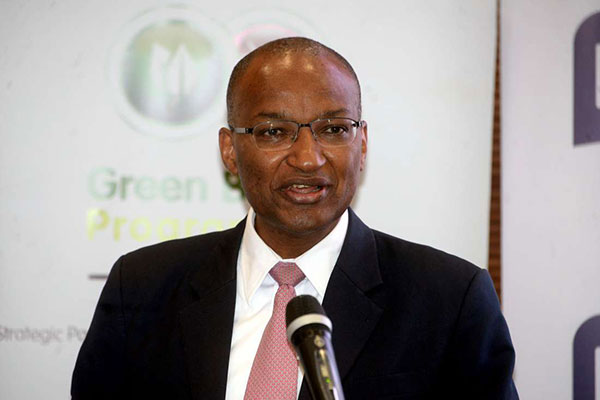The Monetary Policy Meeting of the Central Bank of Kenya (CBK) has sought to retain the CBR rate at nine percent, a move that signals that fear lingers about the High Court ruling that was made regarding the declaration of the unconstitutionality of the interest rate law last March.
The interest law, pegged on the 2019 Finance Bill, had sought to propose that commercial banks charge a consistent interest rate on loans given to the Small and Medium Enterprises (SME’s).
The law was declared unconstitutional because it had an opposite effect of discouraging credit to the target market of SME’s.
Reaching its outcome yesterday, the MPC said that the decision to retain the CBR of nine percent is because of certain reasons.
These include the macroeconomic stability that includes such indicators as inflation, a rise in the economic growth that is expected to be 5.8 percent, as well as volatility in the global markets.
The statement by the CBK comes a day after President Uhuru Kenyatta, while at the recent Singapore Summitt, encouraged Singapore to use Kenya as “ a gateway for Asian goods for the continent that can potentially earn it more than $ 29 trillion.”
According to the CBK, inflation dropped by 1.3 percent in August, from the previous rate of 6.3 percent in July due to a drop in food prices, such as vegetables, due to an increase in their output.
This was due to improved weather conditions which have also led to a decline in food prices. Food inflation declined from 6.7 percent in August, from 7.9 percent in July.
“ A slow in the demand of beverages and cosmetics due to the new system to tax these products has lowered Non-food-non-fuel (NFNF) inflation remained below 5 percent,” states the CBK.
In July, the Kenya Revenue Authority (KRA) introduced a new tax system last July, known as the Excisable Goods Management System, to impose these products in an attempt to earn more revenue. and also weed out those seeking to copy them. Not only was it supported by Treasury but also corporates in the manufacturing industry who went went to court.
Another reason for the lowered food prices, CBK states, is due to the decline in fuel prices.
A spot check by the East African Business Times at a Total fuel station on Kimathi street on the morning of September 24 2019, revealed that petrol is being sold at Kshs 112.80, while diesel is being sold at Kshs 103.
But the CBK cautions that the recent increase in international oil prices might have a ripple effect on global markets.
A recent case example is when drones attacked oil facilities in Saudi Arabia last weekend, which adversely affected oil supply and global prices.
The Saudi Arabian-based Aramco is the largest producer of the commodity in the world.
“ Inflation is expected to be consistent due to expectations of lower food prices, favourable weather conditions and lower costs of electricity,” further says the CBK in a statement.
The Forex market has also remained relatively stable due to the current account deficit of 4.2 percent growth in Gross Domestic Product (GDP) in the last one year, from July 2019, from 5.5 percent in July 2018.
This is due to the high performance from exports such as horticulture and manufactured goods, diaspora remittances, high tourist and transport numbers and lower imports of food and equipment that is being used for the Standard Gauge Railway (SGR).
The current account is also expected to reduce by 4.5 percent of GDP in 2019, from 0.5 percent in 2018.
Forex CBK reserves of $ 9.091 millon are based on imports of over the last five months.
Private sector growth has risen by 6.3 percent between August 2019/2018, led mostly by consumer goods at 23 percent; trade, which stands at 8.7 percent; private households which stand at 8.6 percent; as well as manufacturing at 9.5 percent, while finance and insurance (6.3 percent).
Last year, the CBK introduced reforms in the banking sector requiring information to be more transparent.
The regulator had stipulated that customers should be able to access the prices and loans of banking products on the website of banks.
While previously a shunned area, banking corporates are turning towards giving credit to SME’s with a focus on those that have an annual revenue of Kshs 10 million and above.
The ratio of the liquidity of commercial banks (50.8 percent) and capital adequacy ratio of (18.3 percent), stands as of August, states the CBK.
As the country continues to implement the Big Four agenda focusing on the key policy areas, the CBK observes, Kenya is expected to record strong growth in key economic sectors such as tourism, improved weather conditions, on-going structural investments as well as a stable macroeconomic environment with inflation as one of its indicators.

